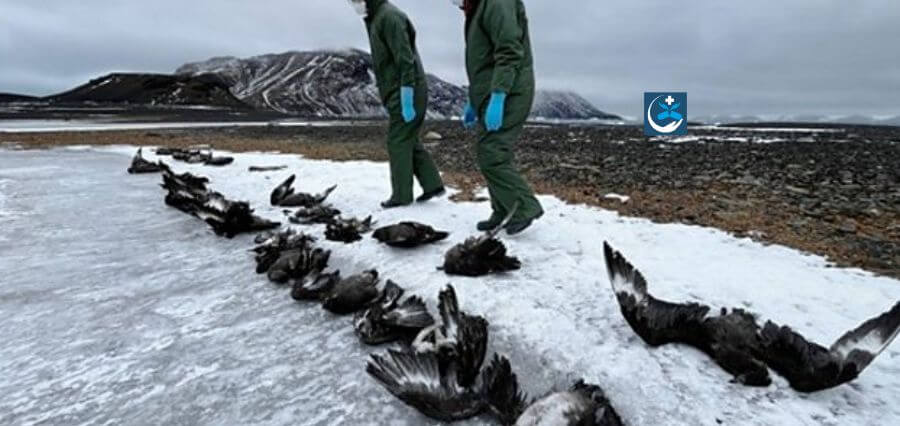A deadly and rapidly mutating strain of avian influenza, commonly known as bird flu, has breached the fragile ecosystem of Antarctica, the world’s most remote continent. Scientists warn that it is only a matter of time before this highly contagious pathogen reaches the shores of Australia.
The devastating impact of this virus is already evident in the form of “mass mortality events” that have claimed the lives of scores of Adélie penguins and skuas, a phenomenon unprecedented in the continent’s history. The bodies of these birds lie scattered across the snow and ice, grim reminders of the unrelenting spread of this deadly disease, which continues to infect new species of birds and mammals across the globe.
During a recent disease surveillance expedition in March, a multinational crew of scientists led by Dr. Meagan Dewar from Federation University Australia made a grim discovery. “It was quite devastating, every couple of meters you’re finding another dead bird,” Dr. Dewar told 7.30.
Among the casualties were dozens of skuas, large brown seagull-like birds that appeared to have suffered sudden deaths. “It’s devastating that we may have lost a population, just as we’ve discovered it,” Dr. Dewar lamented.
Determined to unravel the mystery, the researchers ran experiments on tissue samples collected from the skua carcasses aboard their yacht, performing tests similar to the sequencing of COVID-19. Their findings, while not entirely unexpected, carried a heavy reality: a mutated strain of the bird flu virus had penetrated the world’s most remote continent.
“Sadly, it’s something we predicted; it was something that was going to happen,” Dr. Dewar acknowledged.
While the extent of the pathogen’s spread in Antarctica remains unknown, tests are being conducted to investigate the cause of death for thousands of Adélie penguins on nearby Heroina Island, classified as the third-largest Adélie penguin colony in the world. Dr. Dewar noted that the appearance of the penguin corpses, with food still in their stomachs and seemingly healthy bodies, suggests a sudden death likely caused by an infectious disease.
As samples from the penguins undergo analysis, the scientific community braces for the potential consequences of this deadly virus breaching one of the last remaining pristine ecosystems on the planet.

